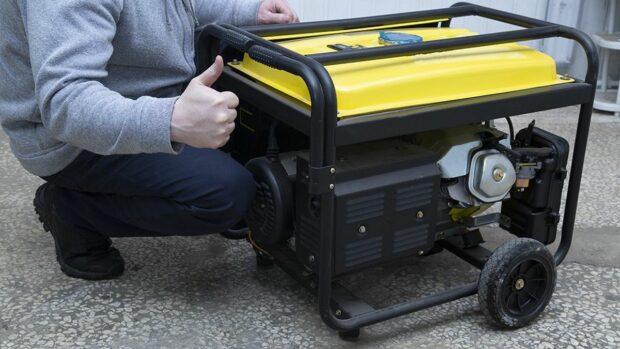Electricity has become such a common part of our everyday life that we sometimes forget how important it is and how much we depend on it. Only when power cuts occur due to adverse weather conditions, we realize the fundamental role it plays in our lives and how essential it is to have an electric generator that provides us with electrical energy.

Today we are going to discuss about the pros and cons of having a generator at home.
Pros
Here we explain the most important advantages for having a generator in your home.
Guaranteed Power Supply – Power generators can produce electricity at any time and constantly, so regardless of whether there has been a failure in the main power system or if there has been a power outage due to a storm, we will continue to have power supply , which will allow us to continue with our daily activities with different electric devices.
Avoid damage – With an electric generator, we will avoid the losses caused by a power outage in a business. In the same way that in a home we will prevent the food that we have in the refrigerator from deteriorating or causing damage to electronic devices.
Greater security – Running out of electricity can be a risk for certain sectors and also in homes with children, so buying an electric generator will give us greater security.
Profitability – They are very profitable devices in the long term as long as they are used correctly.
Other Benefits for buying an electric generator
Sometimes it is not clear to us what electric generators can be used for, stop by this article and learn about the use that electric generators can have.
If we talk about the house, it is as simple as thinking about what type of household appliances we need to connect in order for our lives to continue as normal. We can think of a fridge for example, in the microwave or even a computer that we use at home to be able to work.
In the case of an office or a business, without electricity we would be forced to close, not only because we would not be able to work with the machinery with which we operate to offer our products and / or services, but because our clients would feel unhappy if they do not have an electric light to make their purchases or see what they are eating.
Also, think about the advantage that you would have if you are the only establishment in the area that has acquired an electric generator to supply the most basic needs, you could multiply your sales if an electrical outage occurs.
On the other hand, you should bear in mind that getting an electric generator is not an expense, it really is an investment for the future that pays for itself, as it does not have downtime and makes us feel more comfortable.
Also, electric generators have greatly improved in recent years. Before they were heavy, with low autonomy, they only operated for 3 hours, they had to be recharged continuously and emitted a lot of noise.
However, today electric generators are manufactured following engineering parameters that reduce noise levels considerably, have high autonomy and are much lighter.
Cons
- The generator is useful for always being supplied with electricity. If a cut occurs for example in winter, it will not affect your comfort. But you can imagine, the advantages often go hand in hand with the disadvantages.
- No fuel, no generator. This means that when it works, it releases combustion gases. Therefore, it is impossible to place it inside your accommodation. It must be installed outside (even in a cellar or a garage is excluded).
- The device emits noise in working order. Noise pollution can be more or less strong depending on the device.
- A generator requires intervention on the electrical installation to connect it to the home network. If you have no knowledge in the field, performing the maneuver by yourself seems compromised. Also, do not forget the compulsory control of your system.
- To return to fuel, you must have diesel or gasoline to power your generator. This means that you will need to store a certain amount, especially if you want to stock up enough to overcome multiple power outages. However, both the storage and the generator must comply with environmental legislation. Concretely, depending on the power of the generator and the quantity of fuel stored, it is possible that you have some steps to take. For example, you could be subject to a reporting obligation or need an environmental permit for the generator, fuel storage, or both.
- The standby generator itself checks whether it is still operational by carrying out regular tests. They consume fuel and require an additional amount. But in general, remember that in addition, this type of generator must be maintained and therefore generates some costs.
Pick a generator according to your use
Before buying a generator, think about how you will use it. There is no point in paying a crazy sum for a device that is far too efficient compared to your needs.
Here too, two cases can arise.
- If you want to acquire a generator to operate a single device, choose the classic model. To connect your equipment to the generator, you can use an extension cord.
- If you want to power all of your electrical devices instead to make sure the power outage doesn’t change anything, you need a backup generator.
- For any kind of recommendation, you can visit Powerstuffs.com.
Conclusion
The generator allows you to avoid the inconvenience of a power outage. This is its advantage and perhaps the only one for that matter. Indeed, its frequency of use will remain limited and even if it seems practical as a temporary solution, it will cost you quite expensive. Besides, it is very likely that your investment will never pay off.
Also, keep in mind that this is electricity and that generating sets can therefore present certain dangers. Even if they seem easy to install, we strongly recommend that you contact a professional.



